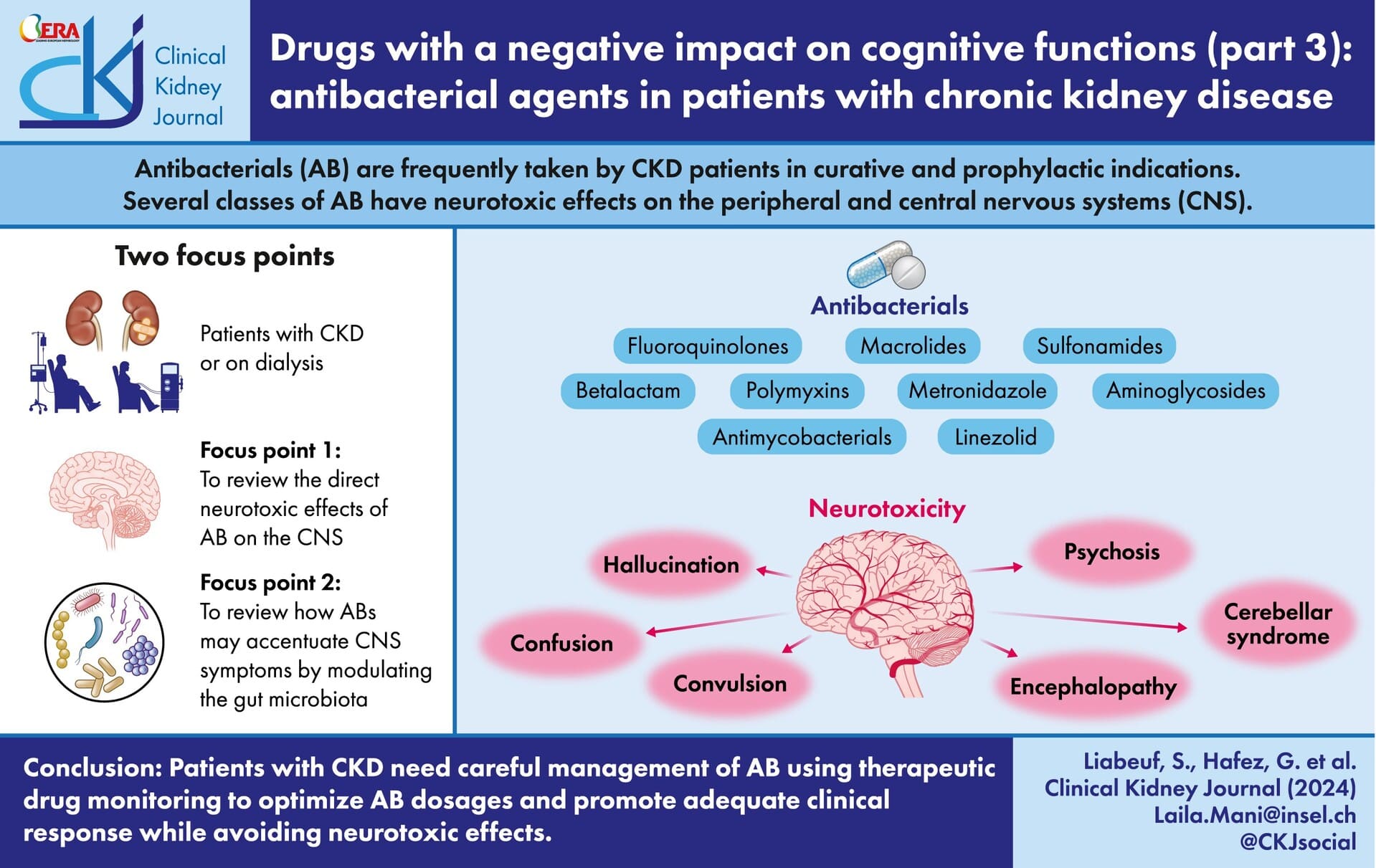Third Call for Short Term Scientific Mission (STSM) applications within the COST Action “Cognitive decline in Nephro-Neurology: European Cooperative Target (CONNECT)”
For Missions occurring until October 30th, 2023.
Deadline for submission: October 10th, 2023
Expected date of notification of application outcome: Up to two weeks from receiving the application
All STSM activities must occur in their entirety until the date specified above.
All submitted STSM applications will be decided upon on the decision of our committee depending on available funds.
Applications submitted after the deadline will be subject to individual assessment and will be taken into consideration depending on finances available.
Short Term Scientific Missions (STSMs) are exchange visits aimed at supporting researchers’ individual mobility, strengthening existing networks and fostering collaboration. STSMs are intended especially, but not solely, for young researchers.
An STSM should specifically contribute to the scientific objectives of the COST Action “Cognitive decline in Nephro-Neurology: European Cooperative Target (CONNECT)” while enabling those partaking in the missions to establish new partnerships, learn new techniques, gain access to specific data, instruments and/or methods not available in their own institutions/organizations.
STSM – ELIGIBILITY RULES
STSMs are open for PhDs, PostDocs, and advanced career researchers employed at institutions participating in “Cognitive decline in Nephro-Neurology: European Cooperative Target (CONNECT)”, or at approved institutions. STSMs must be performed between COST countries – researchers cannot apply for an STSM within their own country.
Particular consideration will also be given to candidates moving from/to COST Inclusiveness Target Countries (ITCs), which include Albania, Bosnia-Herzegovina, Bulgaria, Cyprus, Czech Republic, Estonia, Croatia, Greece, Hungary, Lithuania, Latvia, Malta, Moldova, Montenegro, Poland, Portugal, Romania, Slovenia, Slovakia, Republic of North Macedonia, Republic of Serbia and Turkey.
International COST participants may host STSM researchers from European COST countries but may not apply for STSMs themselves.
Awards throughout the annual grant period (for the third year: October 2022 – October 2023) will be made to support scientific excellence, and to support a variety of researchers in terms of gender, career stage, affiliation, and nationality.
Specific information
STSM will of the duration between 5 and 90 days (and up to 180 days if the applicant is an ECI). The STSM will be a fixed grant to cover part of the travel expenses and living allowance. The cost of research materials is not eligible for consideration as part of the grant.
Please note that the awarded grant will be paid only after the STSM has been completed – therefore the applicant must have approval and prior financial support e.g., from their own institution.
STSM awards may be combined with other funding sources, but these must be acknowledged in the application.
Financial support is limited to cover travel, accommodation and meal expenses and is paid in the form of a Grant. The amounts granted for each individual STSM will be determined during the evaluation process by the STSM committee. The selection of applicants is based on the scientific scope of the STSM application which must clearly compliment the overall objectives of the Action and be related to a specific Working Group.
In your application, you will have to describe the goal of the proposed STSM, how it contributes to the scientific remit of the COST Action “Cognitive decline in Nephro-Neurology: European Cooperative Target (CONNECT)”, the planned expenses and the outputs planned as result of the STSM. For ECIs, PostDoc and PhD students, two support letters by advanced career researchers will be required.
For detailed rules regarding eligibility and financial support, please see the relevant sections of the COST ANNOTATED RULES (from page n. 95).
Deadline
Interested researchers can submit their application and supporting documents by the deadline of 31 August 2023.
How to apply
This is a step-by-step guide to applying for an STSM and the criteria by which STSM applications will be assessed. More in-depth information can be found at the COST USER GUIDELINES.
- Applicants must carefully read the funding rules detailed in COST ANNOTATED RULES dedicated section (from page n. 95).
- Applicants must submit an application using e-COST LINK. Please search in the menu our COST Action identified with code ‘CA19127’. If you do not already have an e-COST account you will first need to ‘create an account’ on this page – which will include providing the details of the bank account where the grant will be lodged if your STSM application is approved and the STSM successfully completed.
- Applicants must obtain a letter of invitation from the Host Institution confirming that they can undertake the STSM on the given dates should their application be approved.
- Applicants must complete, submit and download their STSM application online at: https://e-services.cost.eu/stsm
- Applicants must send their STSM application form submitted to e-COST (pdf) and the relevant supporting documents to prof. Ewout Hoorn (e.j.hoorn@erasmusmc.nl)
See Annex 1 and 2 for a template of a letter of support from the home institution and host institution
List of supporting documents to be submitted for the evaluation
- Letter of support to the applicant from Home institution (Annex 1)
- Letter of invitation to the applicant from a senior Researcher at the Host institution (Annex 2)
- The pdf of the STSM application form from the e-cost site
- An overview of the proposed activities that will be performed, a work plan for the visit, a description of the proposed contributions to the scientific objectives of the “Cognitive decline in Nephro-Neurology: European Cooperative Target (CONNECT)” Action, an outline of the host’s scientific expertise/resources in support of the STSM (maximum 8 pages, the font should correspond to Times New Roman size 12 pt with single line spacing and standard margins of 2 cm)
- A Full C.V. (including a list of academic publications – if applicable)
- A certificate demonstrating the position as PhD student, postdoc or other position eligible for STSM grants
CONTACTS
STSM Coordinator – prof. Ewout Hoorn (e.j.hoorn@erasmusmc.nl)Chair of the Management Committee of the Action – Prof. Giovambattista Capasso – gb.capasso@unicampania.it
GH Manager – Dr. Antonella Catuogno – simona.saviano@unicampania.it
Evaluation
The “Cognitive decline in Nephro-Neurology: European Cooperative Target (CONNECT)” STSM panel organizes an assessment of the STSM proposal: The STSM selection team assess the proposal (see ‘STSM Selection Criteria’) – may seek expert but impartial advice to inform their decision. If approved, the STSM coordinator sends the application and approval to Grant Holder & Action Chair for a final check.
The Grant Holder sends the applicant a grant letter to sign and return. The STSM should not be started until this letter has been signed and returned.
After the STSM, the investigator submits a scientific report to the STSM Host and STSM coordinator within 30 days of completing the STSM. This must include the purpose of the mission; description of work carried out; description of main results/outputs; plan of future collaborations with Host (if applicable); planned publications resulting from STSM (if applicable); confirmation of successful STSM by Host.
STSM Coordinator and Action Chair approve the final report. The Grant Holder executes payment to STSM Applicant.
Evaluation Criteria for Awarding STSM
STSM funding will be awarded according to the COST key principles of:
Excellence
Inclusivity
Balance (gender and nation)
Criteria for evaluation will be as follows:
The relevance and application of the research to the field of the Action – a detailed work plan will help determine if the scientific aims of the work will be relevant and applicable to the Action’s aims (1-5 points).
The quality and clarity of the proposed research – The STSM application should be of high quality, arguing clearly and cogently the importance and timeliness of the research (1-5 points).
The choice of Host institution – the applicant must give specific scientific reasons for visiting their chosen Host institution. We will also be tracking the geographical distribution of the Host institutions to ensure there is an evenly spread network for knowledge transfer. The involvement of ITC countries will be a plus (1-5 points).
The home institution of the researcher – We will take into account the number of applications from each institution to ensure a fair spread of research across the network. Involvement of ITC countries will be a plus (1-5 points)
The profile of the researcher – We will take into account the researcher’s potential of successfully completing the STSM on the basis of their previous work and achievements commensurate to their career stage.
The publication/output potential of the research carried out – Based on the STSM work plan and detailed publication/output plan (1-5 points).
WHAT IS REQUIRED AFTER COMPLETING THE STSM:
Within 30 days from the end date of the STSM, the successful applicant must submit a scientific report to the Host institution and to the e-COST system (Annex 3).
The scientific report should cover statement of achieving the project aims, a description of the work carried out and the outcome/results, expected publications that may arise from the STSM (if applicable).
The applicant is also responsible for acquiring an official acceptance letter/e-mail confirmation of acceptance from a senior Researcher affiliated to the Host institution formally accepting the scientific report.
Failure to submit the scientific report within 30 days from the end date of the STSM will effectively cancel the Grant.
(Please note that the COST Association can request additional information to substantiate the information contained within the documents submitted by STSM applicants).
FAQ
Who can host a STMS?
The host institution must be a legal entity located anywhere in the world*, however, the said institution should be able to provide the necessary training and resources to achieve the objectives of the STSM. The Host can be from any relevant sector, including industry. The Host does not have to be a Management Committee or Working Group member.
*Please note that following the EU Council Decision (CFSP) 2022/52 of 13 January 2022, amending Decision 2014/512/CFSP, activities located in Russia are currently not eligible and as such the Host institution cannot be located in Russia.
Can a STSM be carried out in the same country of affiliation with the applicant?
No. A STSM must be performed in another country other than the applicant’s home country.
What is the maximum grant amount for STSMs?
The maximum grant amount for STSMs is 4.000,00 EUR.
Is there a maximum amount for flight or maximum cost per day for a STSM?
No. There is no minimum amount per day nor maximum amount for flight. However, the maximum amount that can be applied for is 4000 EUR. The person/s responsible for assessing each grant application should take into consideration if the amount applied for fits the purpose of the STSM, the length of stay as well as the destination country.
Is there minimum or maximal length (number of days) for a STSM?
No, there are no minimum or maximal number of days required to perform a Virtual Mobility grant or an STSM. Please note that any activity must be carried out within a given Grant Period.



